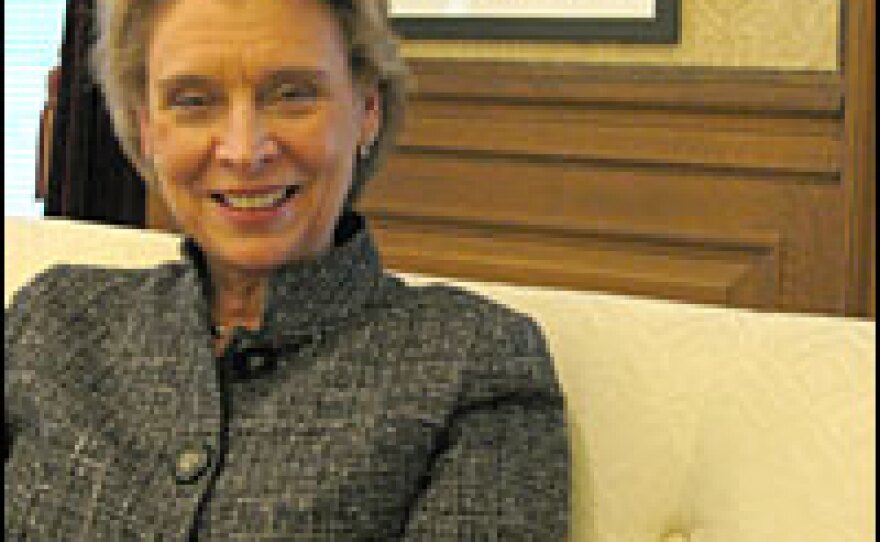
The Obama administration wants the economic stimulus money spent fast, and it's relying on states to do much of the spending. But Washington state's stimulus czar says Congress seems to be flagging most of the money for specific uses. That may leave states with less discretion over funds than they had hoped.
In Olympia, almost every hour on the hour, petitioners stream into the office of Dick Thompson, the governor's point man on the stimulus money. They are representatives of cities, counties, local industries: Some come in teams led by professional lobbyists, and others, like Sarah Smyth McIntosh, come alone.
McIntosh is a condo developer in Olympia, and she'd like the feds to help spruce up the neighborhood around her building with a park, a trail — even a fish ladder to help spawning salmon get up a creek.
"That's shovel-ready!" she says. "That right there could put people to work — and that's only a $300,000 project!"
Thompson listens patiently, making sympathetic noises. He's a veteran of state government, now retired — and he's doing this job for free. His retiree attitude has a calming effect on people as they make their pitches. Still, they don't want to leave until they know whether they've made "the list."
"People keep saying we have a list, and I keep saying we have a pile — but you'll be added to the pile," Thompson says.
The "pile" is kept upstairs, in the Office of Financial Management, where Tom Saelid has been trying to impose some order on the funding requests.
Saelid holds a binder with more than 500 requests. And from reading the letters, it's clear that people don't really understand what's available to them, he says.
What people don't understand, Thompson says, is just how little control the state will have over the money.
"We really thought that there was going to be a lot of discretion, what I call a big check," he says. "And we were going to be deciding between libraries and sewer projects and road projects."
Instead, he says, Congress seems to be channeling most of the money into specific uses — K-12 education, Medicaid, transportation — following pre-established guidelines. The money almost spends itself, and the states are left with control over a lot less money. The pros call this "peanut butter": It's just enough to spread around on small-scale projects, like the new intersections and repaving jobs that were already on regional to-do lists.
From the states' point of view, that puts too much of the money out of their reach — just when they're desperate to plug the holes in their budgets.
Democrat Lisa Brown, the state Senate majority leader and also an economist, says the state is going to have to make huge cuts — and probably lay people off — while trying to create new jobs elsewhere with the federal money.
"It's like you're stepping on the gas with one foot, and stepping on the brakes with the other foot," she says.
Washington Gov. Christine Gregoire — a Democrat and an early Obama supporter — admits that she was thinking bigger.
"I don't want to look a gift horse in the mouth," she says. "To be perfectly honest with you, we're in dire straits. So I want to be appreciative, No. 1. But I will tell you that the expectations were different than what we're seeing come out of Congress."
Even though the states won't control most of the money, it will pass through states' hands, Thompson says.
"I call it like skipping a rock. It hits us long enough to be appropriated to the locals, but we may still be responsible back to the feds for the accounting for it," he says.
And that accountability means a lot of extra work.
During one meeting, Thompson and staff try to brainstorm a way to count the jobs created by each project. Down the road, that number will be pretty important to the politicians.
Irv Lefberg is the state forecaster who will make those calculations, and he says he's already getting his first hard data.
"We've gotten some calls from consultants that have been hired by local governments to help them with the applications," he says.
Those consultants, he says, may represent the first new jobs created by the stimulus package — "and we haven't spent anything yet."
It's not exactly "shovel-ready," but at least somebody has found work.
Copyright 2022 NPR. To see more, visit https://www.npr.org. 9(MDAzMjM2NDYzMDEyMzc1Njk5NjAxNzY3OQ001))







